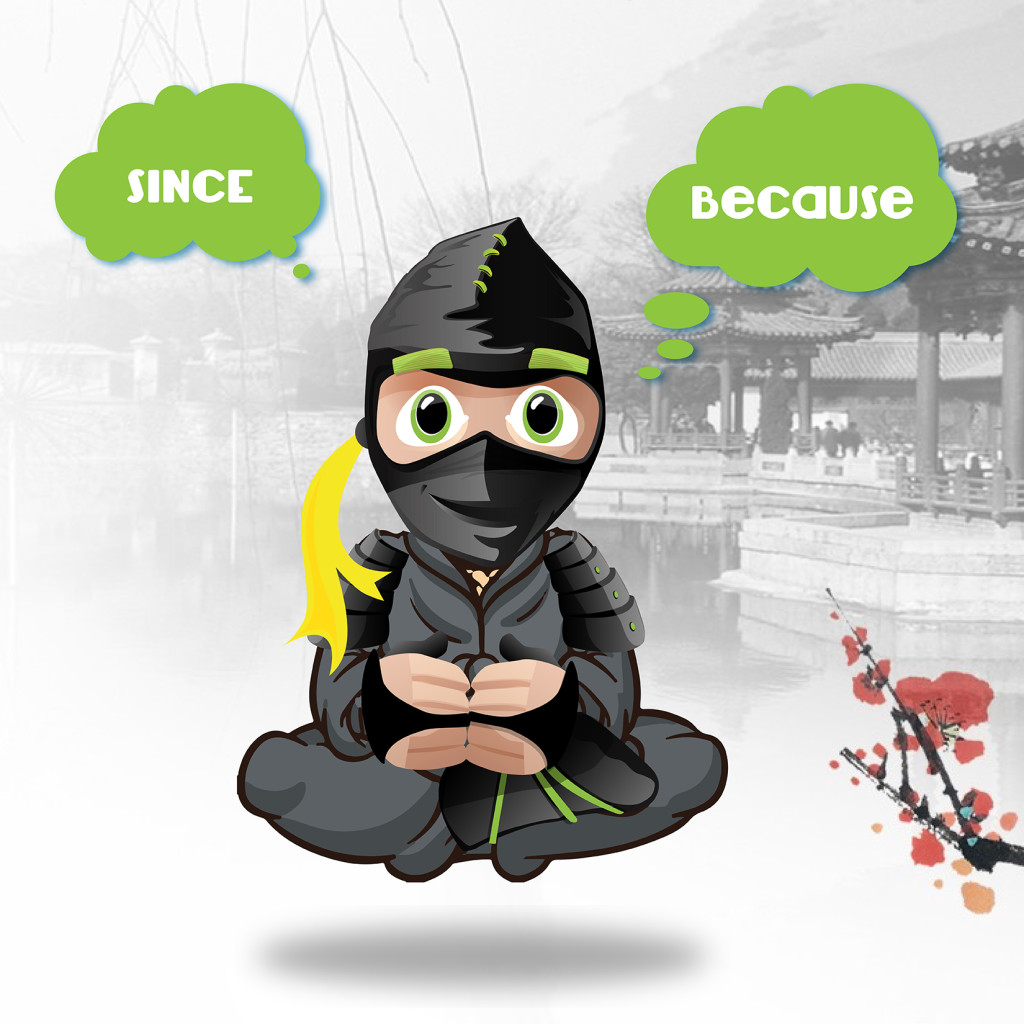04 12 2015
A Little Love for Put-down Punctuation
In journalism, commas in a list are frowned on (AP Style outright bans them), and simplistic writing is encouraged. While journalists are, by far, some of the best writers out there, they have to adhere to a certain style—and not just AP or inverted pyramid. Their writing itself must be presented a specific way, or the piece gets tossed back at them like flotsam. “Your word count is too high,” is an often-heard complaint from news editors. “Re-arrange your first four paragraphs and cut back on the prose,” et cetera.
Read More
Q: When should you use “since,” and when should you use “because?” Also, can I use “because” at the beginning of a sentence?
Read More
08 09 2015
Can the Clichés!
They’re tried-and-true, but they’ve been around the block a few times. They’re shopworn, threadbare, and coming apart at the seams. It’s time to put them out to pasture.
Read More
Welcome to the very first Language Ninja column of the summer! Let’s pour ourselves a frozen peach iced tea, relax by the pool, and start tacklin’ some rules of grammar and syntax!
Q: Is “close proximity” redundant?
A: A bit, yes. Of course, that doesn’t mean that the Ninja won’t go on and on at length about the subject.
Read More
02 06 2015
How to Use (and Avoid) Obscure Words
If you are someone who enjoys writing, you probably take pride in using your skill and knowledge of the language to craft a message that communicates exactly the intended point. The raw materials at your disposal—words—are not unlike those of a sculptor; some are easier to work with than others. So when you can master the harder materials—more obscure words—you might feel a special satisfaction.
Read More
Q: What is the difference between “less than” and “fewer than?”
A: This distinction is one of those linguistic phenomena that is more a matter of style than actual, understandable meaning. No matter which form you use, you will be understood perfectly, but that won’t stop people from calling you a moron on social media forums if you don’t use the “correct” phrase. Well, the Ninja is all for jettisoning useless style rules, but she prefers doing so only after those style rules are learned and understood. It’s the difference between presenting yourself either as an intellectual maverick, or just sounding like a failed reality TV star.
Read More
28 04 2015
Is Technology Changing Our Language?
As the subject of much woeful head-shaking among English teachers and grammar snobs, text and Twitter lingo have long been blamed for ruining the way we now communicate. (Because we were such bastions of language excellence before, I guess? #scapegoat)
Read More
The prevalence of homonyms in the English language is significant, almost as if homonyms were some deliberate linguistic choice designed to frustrate native speakers and secondary language students alike. A piece of peace, the imminent capital in the eminent capitol, a man you meet seen whining at a wine and meat scene. For those unfamiliar with the subtleties of the English vocabulary, it can be enough to make you bang your head against the wall.
Read More
Happy springtime, everyone! The Ninja’s back, and answering more burning language usage questions. Let’s get crackin’!
Q: What is the difference between “further” and “farther?” Is there any real difference?
A: To answer both your questions succinctly: The existence of physical distance, and sort of.











